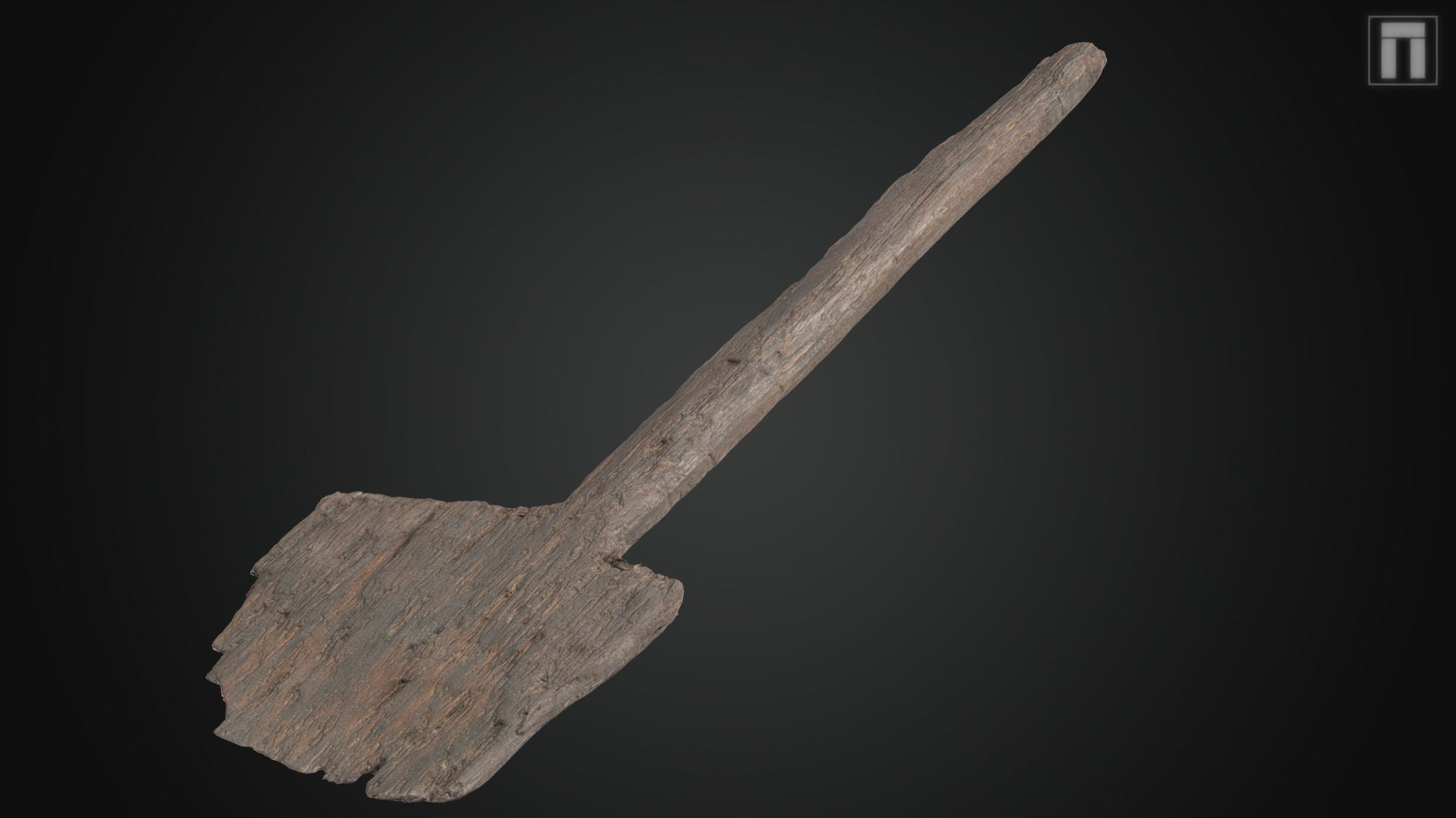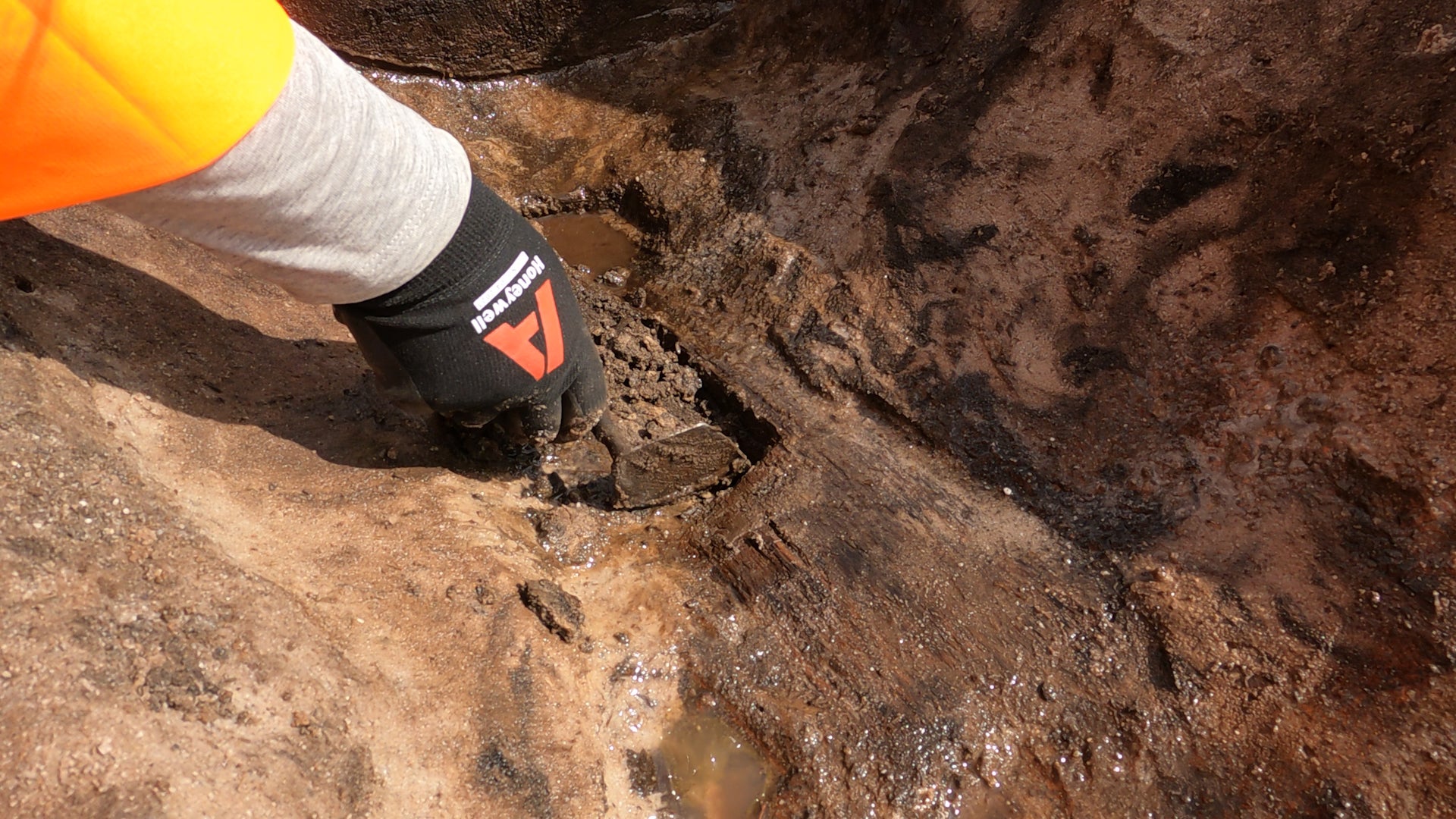Archaeologists reveal how ‘exceptionally rare’ 3,500-year-old wooden spade was so well preserved
The rare Bronze Age spade was discovered during a coastal habitat project in Poole Harbour

Your support helps us to tell the story
From reproductive rights to climate change to Big Tech, The Independent is on the ground when the story is developing. Whether it's investigating the financials of Elon Musk's pro-Trump PAC or producing our latest documentary, 'The A Word', which shines a light on the American women fighting for reproductive rights, we know how important it is to parse out the facts from the messaging.
At such a critical moment in US history, we need reporters on the ground. Your donation allows us to keep sending journalists to speak to both sides of the story.
The Independent is trusted by Americans across the entire political spectrum. And unlike many other quality news outlets, we choose not to lock Americans out of our reporting and analysis with paywalls. We believe quality journalism should be available to everyone, paid for by those who can afford it.
Your support makes all the difference.Archaeologists have unearthed an exceptionally rare wooden spade dating back approximately 3,500 years.
Experts from Wessex Archaeology discovered the treasure during a project aimed at creating coastal habitats in Poole Harbour, Dorset.
The find is considered one of the oldest and most complete wooden tools found in the UK, with preliminary analysis confirming its Bronze Age origins.
Experts believe the waterlogged conditions of the excavation site contributed to the spade’s preservation, providing insights into how ancient communities interacted with the environment.
The spade’s preservation is unusual, as organic materials like wood typically do not survive for millennia.
Only one other Bronze Age wooden tool, the Brynlow Shovel, found in an ancient mine in Cheshire, has been discovered in the UK, the team said.
The discovery took place during archaeological excavations of the Moors at Arne project, which aims to develop 150 (370 acres) of wetlands to compensate for the habitat lost to climate change.

Archaeologist Phil Trim, who led the recovery of the spade on the site, described it as a “once-in-a-career” discovery due to its significance.
He said: “I’d describe it as a once-in-a-career type find, it’s so rare it’s not something I’d even put on my bucket list that I’d like to find as an archaeologist.
“It’s a really unique object, to find something that’s wooden of that age.”
Initially, the team was uncertain about the object’s nature, suspecting it could be a tree root. However, that was followed by “amazement when we realised that it was actually a tool, almost complete”.
“It was indescribable, it really was an exciting moment,” Mr Trim added.
The spade was located in a circular ditch, which researchers believe was constructed by Bronze Age communities to manage flooding.
Mr Trim noted that evidence suggests they did not inhabit the area all year round, but instead, people visited the area during summer to exploit local resources.

“They’re coming in during summer months to exploit some of the resources in that environment, that sort of peaty environment, whether it be the peat itself, or they’re taking reeds for thatch, or any other items like that,” he said.
“The spade itself would be a perfect tool for cutting peat.”
Ed Treasure, who led the environmental analysis of the spade, explained that its preservation was facilitated by the waterlogged conditions, which exclude oxygen.
He said: “Unlike in a normal archaeological site, where organic remains like wood would disappear, they can become preserved for thousands of years, as this one demonstrates.”
Wessex Archaeology said the spade will now undergo conservation efforts, including freeze-drying, to ensure its longevity.
It will be impregnated with a water-soluble polymer which prevents the spade from shrinking when the water is extracted during the freeze-drying process, so it can be safely stored.
Join our commenting forum
Join thought-provoking conversations, follow other Independent readers and see their replies
Comments